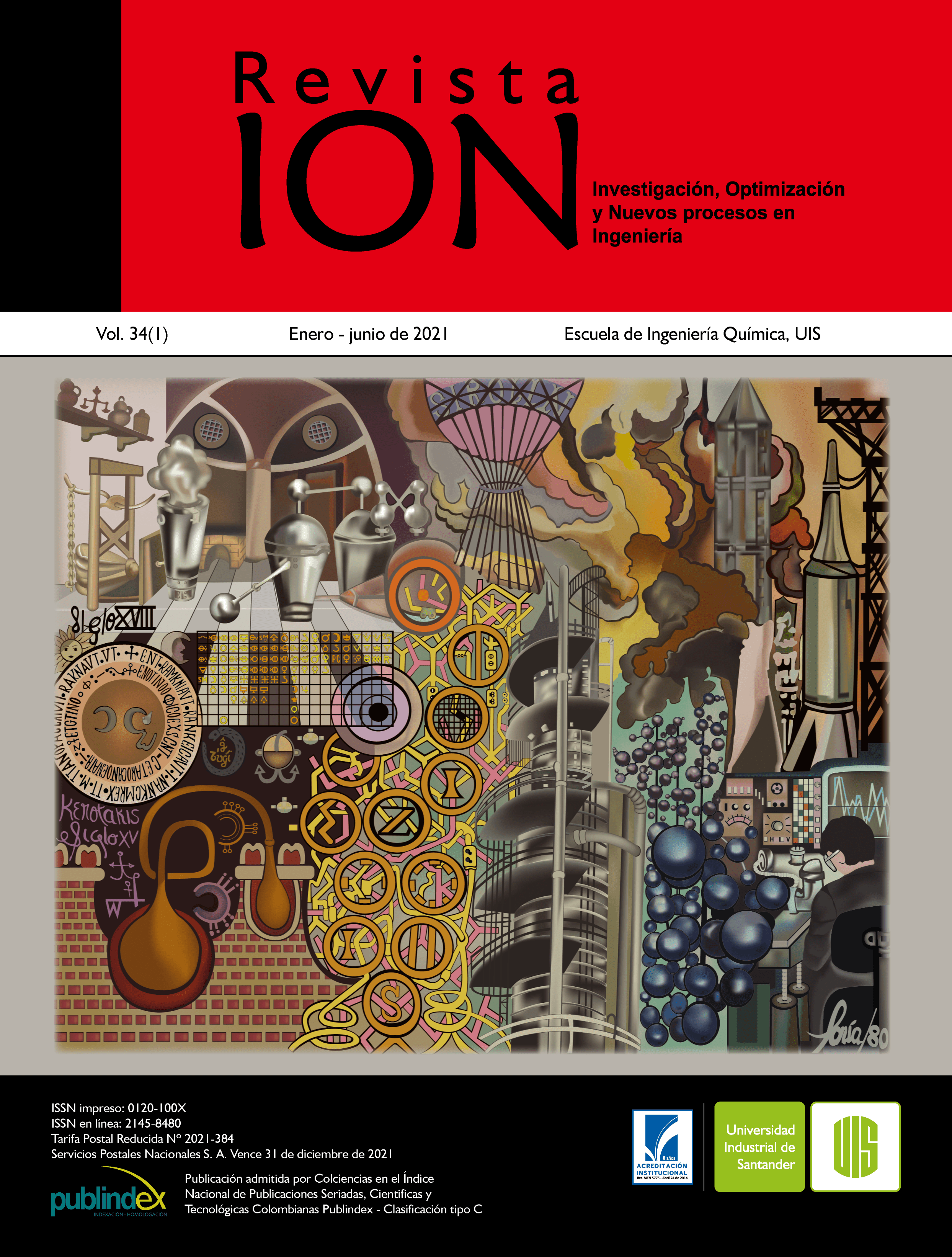Study of Fe-1%Si alloy by injection powder molding for application in the core of electromagneticmechanical devices
Published 2021-05-25
Keywords
- Fe-1%Si Injected,
- Physical properties,
- Electromagnetic-Mechanical Devices
How to Cite
Copyright (c) 2021 Victor H Silveira, Andrew Rafael Fritsch, Moises M Dias, Diego P Wermuth, Andre C Tavares, Lucas D Ferreira, Eduardo Schneider, Patrice M Aquim, J L Cezar, J CK Verney, L Schaeffer

This work is licensed under a Creative Commons Attribution 4.0 International License.
Abstract
This study aimed to study the Fe-1%Si alloy obtained from Powder Injection Molding (MPI), which can be used in the core of electromagnetic-mechanical devices such as motors, generators, transformers, relays, speakers and microphones, among others. The study comprised obtaining (load preparation, injection, chemical and thermal extraction, and sintering), analysis of physical properties of interest, such as magnetic properties, electrical resistivity, hardness and micrographic analysis from metallography in an optical microscope and SEM (Microscope) Scanning Electronic. The results were compared to the same Fe-1%Si alloy obtained from the processes of conventional Metallurgy that is, compaction and sintering.
Downloads
References
[2] Nasar SA. Handbook of Electric Machines. New York, McGraw-Hill, 1987.
[3] Cullity BD. Introduction to Magnetic Materials. Adison. Wesley Publishing Company, Massachusetts, 1967.
[4] Slick PI. Ferro Magnetic Materials. Amsterdam. North - Holland Publisching Company
[5] Mats Persson, SMC Update, Vol1. No. 1, April 1997.
[6] Lall C. Soft Magnetism, Fundamentals of Powder Metallurgy and Metal Injection Molding, Princeton, New Jersey. Metal Powder Industries Federation, 1992.
[7] Lenel FV. Magnetic Applications. Metals Hadbook. 1984;7:638-641.
[8] Bas JA, Puig J, Molins CB. Soft Magnetic Materials in P/M: Current Applications and State-of-the-Art. Modern Developments in Powder Metallurgy, Princeton, New Jersey. Metal Powder Industries Federation. 1988;18:745-756.
[9] Nyberg E, et al. Microstructure and mechanical properties of titanium components fabricated by a new powder injection molding technique. Materials Science and Engineering C. 2005;25(3):366-342.
[10] Kim D, et al. Gas-assisted powder injection molding: A study about residual wall thickness. Powder Technology. 2013;239:389-402.
[11] Chiaverini V. Metalurgia do Pó. 3 a ed. São Paulo: 2017.
[12] Moro N, Auras AP. Processos de fabricação: Metalurgia do pó e o futuro da indústria. Florianópolis: Centro Federal de Educação Tecnológica de Santa Catarina, 2007.
[13]Bose A. Advances in Particulate Materials. 1. ed. Newton: Butterworth-Heinemann, 1995.
[14] Kate KH, et al. Predicting Powder-Polymer Mixture Properties for PIM Design. Critical Reviews in Solid State and Materials Sciences. 2014;39(3):197-214.
[15] Beiss P, Ruthardt R, Warlimont H. Powder Metallurgy Data. Berlin, Heidelberg: Springer Berlin Heidelberg, Vol. 2A1, 2003.
[16]Westcot EJ, Binet C, Germann RM. Monitoring of the Dimensional Changes and Mechanisms During Solvent Debinding. Center for Innovative Sintered Products, 2002. p. 2-10.
[17]Heaney DF. Handbook of Metal Injection Molding. [s.l.] Woodhead Publishing, 2012.
[18] Enneti RK, et al. Review: Thermal Debinding Process in Particulate Materials Processing. Materials and Manufacturing Processes. 2012;27(2):103-118.
[19]German R. Powder Metallurgy Science. New Jersey: Metal Powder Industries Federation, 1984.
[20]Martins, V. Utilização do processo de moldagem por injeção de pós metálicos nanométricos (MIM) para o desenvolvimento de rotor e estator em servomotor aplicado à área médica. (Tese de Doutorado) Porto Alegre, Brasil: Universida de Federal do Rio Grande do Sul; 2015.
[21] Bittencourt SD, Schaeffer L, Dias MM. Ligas Magnéticas Sinterizadas Usadas em Máquinas Elétricas Rotativas. 1. ed. Porto Alegre: Novas Edições Acadêmicas, 2015.
[22]BOLDEA I, NASAR S. The Induction machines design handbook. 2. ed. Boca Raton: CRC Press, 2009.
[23] Jiles D. Introduction to Magnetism and Magnetic Materials. 3a ed. Londres. Chapman and Hall, Vol. 1, 2015.
[24] Callister WD. Rethwisch, D. G. Materials Science and Engineering: An Introduction. 8a ed. USA: Joh Wiley & Sons, 2009.
[25]ASTM_A773/A773M. American Standard Test Method for DC Magnetic Properties of Materials Using Ring and Permeameter Procedures with DC Electronic Hysteresigraphs. 2001.
[26] Boylestad RL, Nashelsky L. Electronic Devices and Circuit Theory. New Jersey, Prentice Hall. 2009.
[27]ASTM A712 – 14. American Standard Test Method for Electrical Resistivity of Soft Magnetic Alloys.
[28]ASTM_E18. Standard Test Methods for Rockwell Hardness of Metallic Materials, 2019.
[29] ASTM_E140. Standard Hardness Conversion Tables for Metals Relationship Among Brinell Hardness, Vickers Hardness, Rockwell Hardness, Superficial Hardness, Knoop Hardness, and Scleroscope Hardness, 2017.
[30]Da Cas, R. et al. Desenvolvimento de um motor universal para furadeira com núcleos do rotor e estator a partir da liga sinterizada Fe1%P. 11º Encontro de Metalurgia do Pó. 2014;51:30.
[31]Cerva LL. Desenvolvimento de uma Máquina Síncrona com Ímãs Permanentes e Núcleo Sinterizado Utilizada em Aerogerador. 2014. (Tese de Doutorado) Porto Alegre, Brasil: Universida de Federal do Rio Grande do Sul; 2014.
[32]PaulettI P. Construção e Análise do Desempenho de um Motor De Indução Trifásico com Núcleo Produzido via Metalurgia do Pó. 2012. (Dissertação de mestrado) Porto Alegre, Brasil: Universida de Federal do Rio Grande do Sul; 2012.


